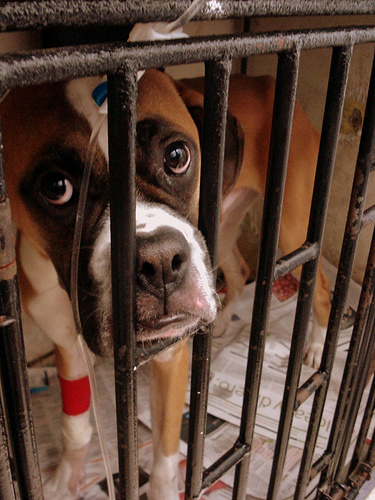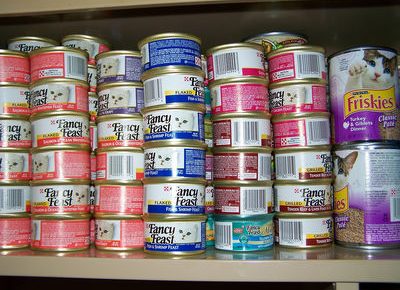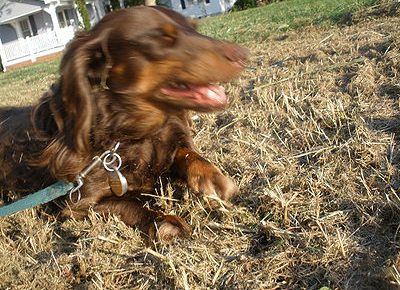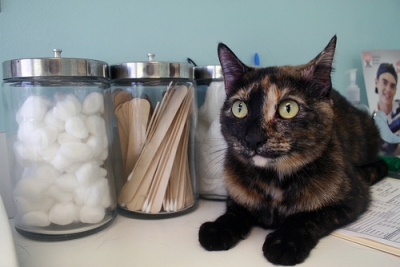
Adenovirus is a contagious virus that affects all mammals, humans and their pets, and birds. There are two types, 1 and 2, Type 1 being the more serious as it attacks the liver causing it to hemorrhage which can result in shock and death.
Type 2 can cause respiratory infection and if left untreated, pneumonia. Kennel cough can also result from a Type 2 infection. Non-vaccinated dogs are at greater risk for the virus and will transmit it to other pets.
Symptoms start with a sore throat and cough. Yellow mucous will be visible in the mouth. As the disease progresses there will be nose bleeds and bruising of the skin. Some pets develop a cloudy or blue tint on the eyes. The next stage is failing liver and kidneys with increased thirst, seizures, vomiting, diarrhea and abdominal pain. Death can follow quickly.
Treatment of Adenovirus depends on how early it is detected. More severe cases need to be hospitalized and treated with IV fluids to rehydrate the body, fresh blood transfusions to provide needed doses of potassium and magnesium. Fresh blood will help with clotting of the open wounds caused by the virus. As much of a high protein and nitrogen diet the pet can manage will help strengthen the immune system and the body heal faster. Recovery is usually within 5 days but depends on the pet’s age, immune system function and how advanced the virus is.
Following recovery, your veterinarian will set up appointments to check your pet’s fluid levels, electrolytes and blood coagulation. It is very important to follow your vet’s instructions with any medications prescribed even if your pet appears to be better.
Your pet should be vaccinated against Adenovirus as it is a very serious illness that can lead to hepatitis and other complications.



